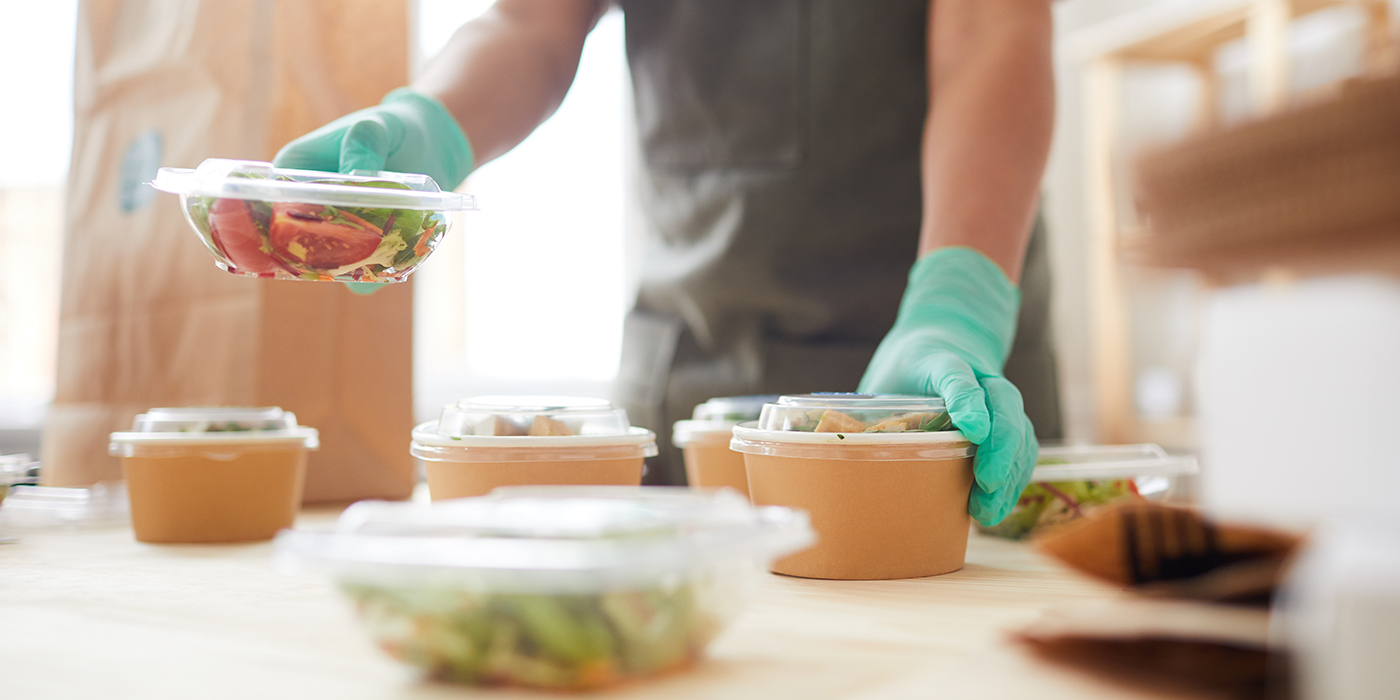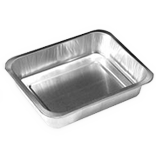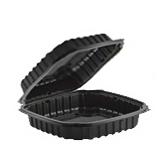Selective
Whether you want your business to use less plastic or provide your customers with compostable options, our experts can help you find the right eco-friendly disposables from our wide selection of products.
Smart, Sustainable, and Disposable—Stock Up on Eco-Friendly Takeout Containers Today!
When it comes to the foodservice industry, disposable products are unavoidable, but it’s easy to make the switch to a more sustainable or zero-waste option, like compostable plates and cutlery or biodegradable plastic cups. Trust our team of experts to help you make the smartest choice for your business with the right eco-friendly disposables.
Switching to eco-friendly takeout containers, like rapidly renewable bamboo plates or compostable bowls, isn’t just a smart business move—it’s a commitment to a healthier planet. Our personalized approach ensures you get sustainable packaging solutions tailored to your organization’s goals, helping you reduce waste and operate more responsibly.

Whether you want your business to use less plastic or provide your customers with compostable options, our experts can help you find the right eco-friendly disposables from our wide selection of products.
For businesses impacted by new sustainability legislation, our foodservice team will help you find the right alternatives for your budget and business.
Your customers care about the environment. Show them that you care too with foodservice products designed to make a statement without making an impact on the environment.
When markets fluctuate and legislature changes, we continue to deliver the same consistent results, legendary service, and best-in-class products.

* Certified compostable by BPI or CMA
Made from compostable materials such as fiber and PLA plant resin

* Made from recyclable materials such as aluminum, PET, PP

* Made from rapidly renewable materials such as bamboo, straw, grass, etc.

* Made from materials such as MFPP which uses 30% less plastic when compared with competing products used for the same purpose.
BradyPLUS GPS® Green Partner Support is an ideal platform for customers who would like to implement a more sustainable foodservice offering that combines low environmental impact foodservice products with proper training and consultative expertise to create a more responsible foodservice program.
BradyPLUS GPS® identifies third-party certifications and guidelines whenever available to substantiate environmentally preferable product claims.
BradyPLUS GPS® is a collaboration and partnership between BradyPLUS and its respective customer and manufacturer partners—and it is a comprehensive approachto implement a more sustainable foodservice program.

Compostable disposable items (such as plates, cups, cutlery, and food containers) are designed to fully break down into non-toxic, organic matter in a commercial composting environment within a specific timeframe. They meet ASTM D6400 or D6868 standards for compostability and are often certified by BPI, ensuring they disintegrate without leaving microplastics or toxic residues.
The term "biodegradable" is misleading and, in some states, illegal for marketing single-use products, including certified compostables. While all compostable products biodegrade, the term lacks specificity on timeframe and environment, leading to consumer confusion and compost contamination from non-compostable "lookalikes." To ensure clarity and compliance, look for eco-friendly disposables that are ‘BPI-Certified Commercially Compostable’ instead.
A product or material that can be collected, processed, and transformed into new products, reducing the need for fresh materials and minimizing landfill waste. The ability to recycle an item depends on its material composition and local recycling facility capabilities, as not all plastics, papers, and metals are universally accepted. Common eco-friendly disposables that are recyclable include: glass, paper, aluminum, PET (polyethylene terephthalate), and HDPE (high-density polyethylene).
Rapidly renewable materials are sourced from natural resources that regenerate quickly, typically within a few years, making them more sustainable than slow-growing or finite resources. Common examples include bamboo, sugarcane, and fast-growing grasses, which require less land and fewer inputs compared to traditional materials like wood or petroleum-based plastics. Some rapidly renewable materials can also be commercially composted. Always check manufacturer labels on your eco-friendly takeout containers to confirm.
Source reduction is a waste prevention strategy focused on minimizing material use at the design and production stages, leading to less waste and a lower environmental impact. This can include reducing packaging, using post-consumer recycled (PCR) materials or manufactured with materials like mineral-filled polypropylene (MFPP), which uses around 30% less plastic, to conserve resources and decrease the overall waste stream.
We partner with the industry’s most innovative and respected providers of both supplies and equipment.






